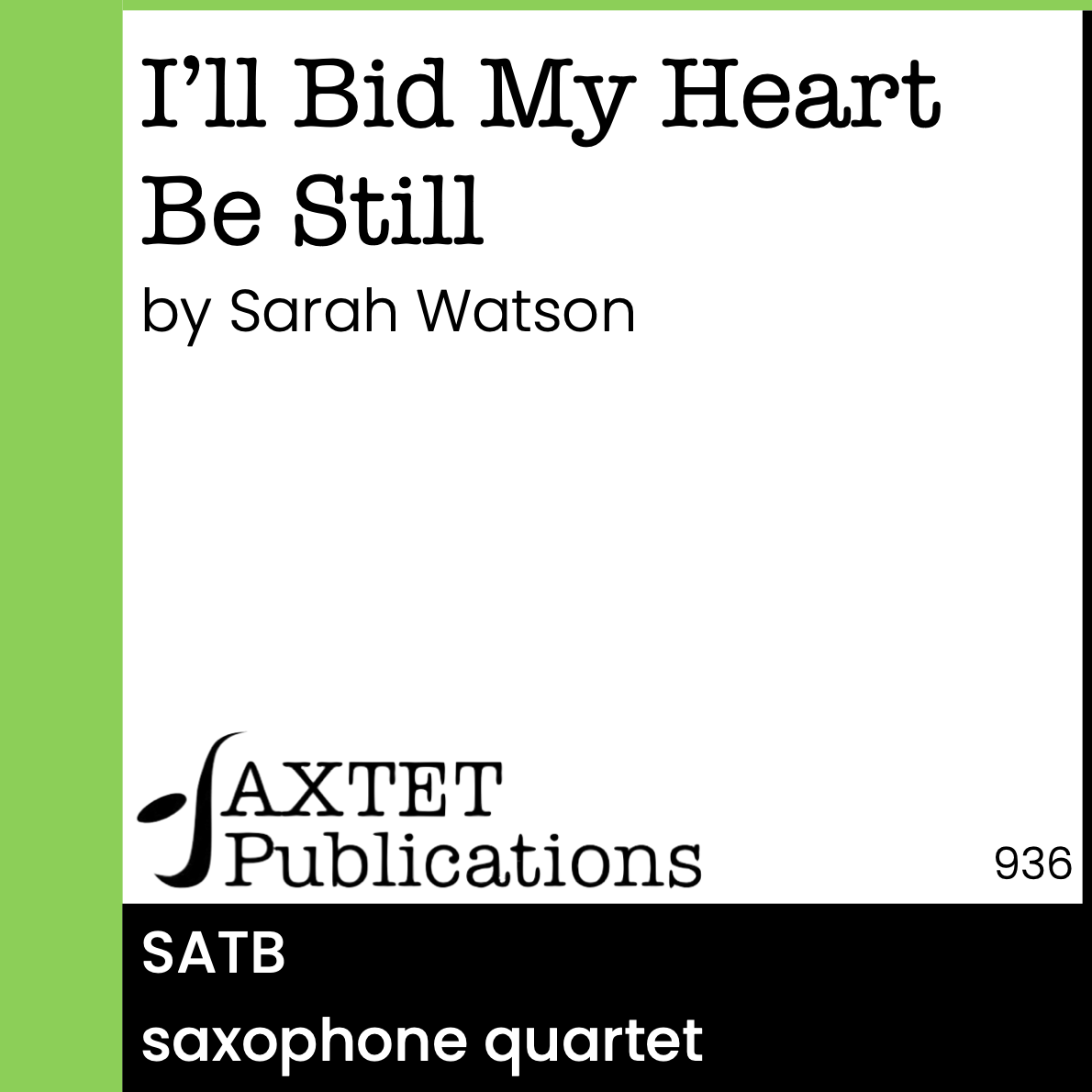“This composition uses a folk melody (Farewell, ye fading flowers!) from the Scottish- English border dating back to at least the sixteenth century. It was probably in the early 1800’s that the Scottish poet, Thomas Pringle (1789-1834), set words to it and it is his lyrics which inspired this piece.
In the song, a woman mourns the death of her husband in battle (most likely Thomas Pringle was thinking of the Battle of Cullodan in 1746). She is told she should not mourn as her husband died a hero but she knows she will never get over his death, and will never give her heart to anyone else.
The piece can be simple and lyrical at the start as, one-by-one, voices join the alto saxophone with gentle countermelodies (‘I’ll bid my heart be still and check each struggling sigh’).
The passage at Figure A is lilting, consoling those whose loved-ones died in battle. Figure B becomes more resolute as the top three voices unite accompanied by the bari.
At Figure C the tempo gradually increases as fragmented memories of the battle resurface and at Figure D there is a flashback to the fighting (‘They bid me cease to weep for glory gilds his name’). The baritone has a march-like version of the melody, and the soprano becomes a piper (fifer). In the run up to Figure E the instruments gradually become quieter as the army leaves the battlefield and the memory fades.
At Figure E there is a period of reflection with different voices overlapping and gradually falling silent. Figure F is simple and sad, a return to the main melody (‘My cheek has lost its hue’). It can be played freely by the soprano saxophone with the other voices providing a chorale like accompaniment until the lower voices rise and disappear, leaving only the soprano saxophone to lament.”
Lyrics by Thomas Pringle (1789-1834)
I’ll bid my heart be still,
And check each struggling sigh!
And there’s none e’er shall know
My soul’s cherish’d woe,
When the first tears of sorrow are dry.
They bid me cease to weep, For glory gilds his name; Ah! ’tis therefore I mourn — He ne’er can return
To enjoy the bright noon of his fame.
(While minstrels wake the lay
For peace and freedom won,
Like my lost lover’s knell
The tones seem to swell,
And I hear but his death-dirge alone.)
My cheek has lost its hue,
My eye grows faint and dim,
But ’tis sweeter to fade
In grief’s gloomy shade,
Than to bloom for another than him.
Thomas Pringle was a poet, pioneer, and abolitionist. Despite a childhood injury which left him lame in one leg, he emigrated with his family to South Africa in 1820. He became a supporter of the anti-slavery movement after witnessing the colonialists’ enslavement and mistreatment of the native people there. On his return to Britain he became secretary of the Anti-Slavery Society but died of tuberculosis before he could see the legislation he fought for come into effect.
The E-Edition PDF bundle comes with a score and the following parts:
Soprano Saxophone
Alto Saxophone
Tenor Saxophone
Baritone Saxophone

1 review for I’ll Bid My Heart Be Still
stephen austen (verified owner) –
I had the privilege of playing this in a quartet with the composer on a recent sax course and was immediately struck by its gentle beauty. Others on the course also loved it and it’s a welcome addition to our sax quartet’s pad. Highly recommended.
Only logged in customers who have purchased this product may leave a review.